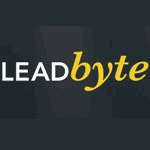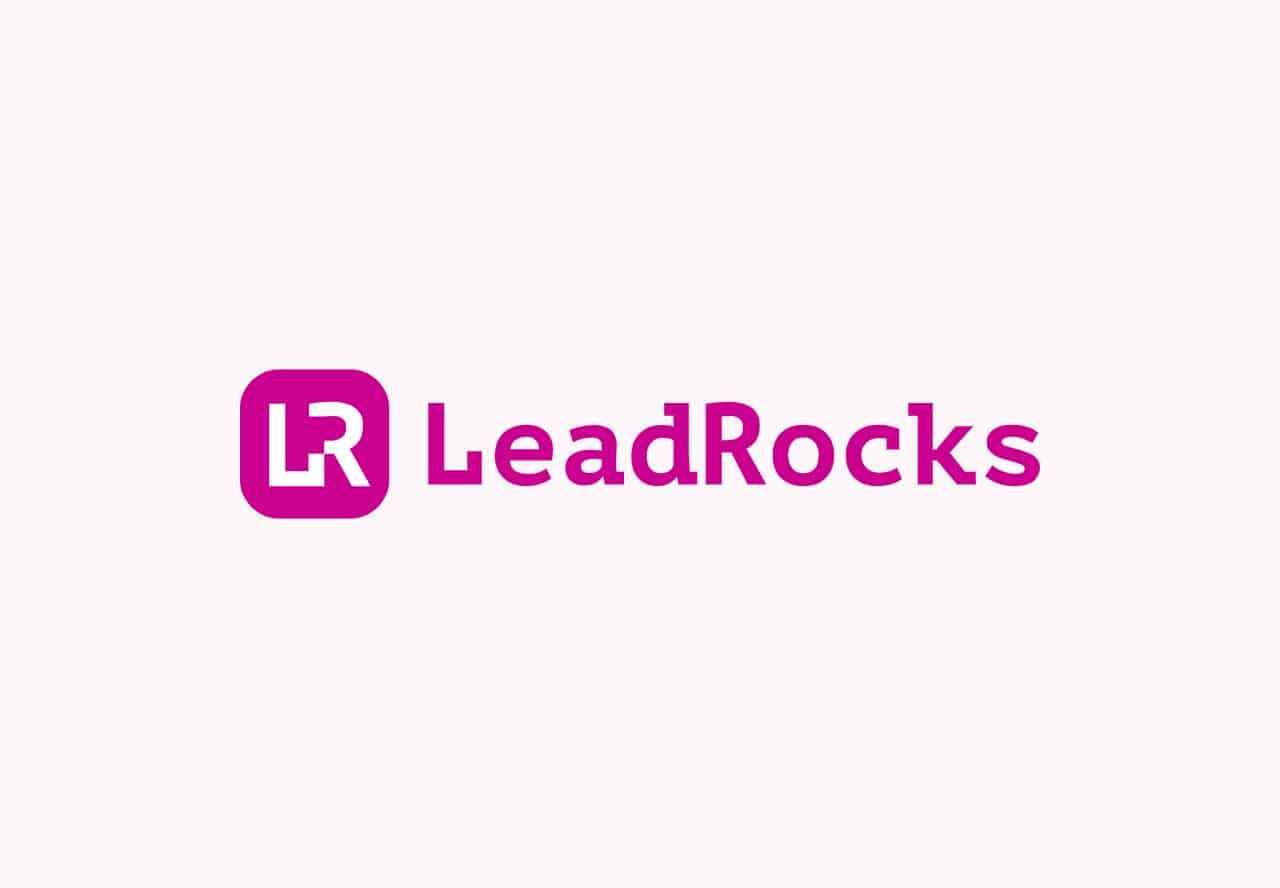Description

LeadByte

LeadHub
Comprehensive Overview: LeadByte vs LeadHub
LeadByte and LeadHub are both tools related to lead management and sales funnel optimization, but they cater to different aspects of the lead management process and potentially different market niches.
a) Primary Functions and Target Markets:
LeadByte:
- Primary Functions: LeadByte is primarily a lead trading and management platform. It focuses on helping businesses capture, manage, and distribute leads effectively. Its core functionalities include real-time lead distribution, campaign management, compliance management, and analytics reporting. LeadByte is particularly strong in lead verification, allowing companies to ensure data quality and compliance with regulations.
- Target Markets: LeadByte generally targets lead generation companies, digital marketing agencies, and businesses in verticals with high lead volumes such as financial services, insurance, and education. Its platform is suited for any organization where lead acquisition and distribution are critical to their business process.
LeadHub:
- Primary Functions: LeadHub typically offers functionalities centered on sales funnel management, inbound marketing, and automation. The platform supports features such as email marketing, CRM integrations, landing page creation, and analytics. It emphasizes nurturing leads through the sales journey with marketing automation.
- Target Markets: LeadHub generally appeals to small to medium-sized enterprises (SMEs) and marketers who are looking for an all-in-one marketing platform that facilitates lead nurturing and conversion. It serves industries ranging from e-commerce to service-based businesses looking to engage prospects more effectively and drive more conversions.
b) Overall Market Share and User Base:
- LeadByte: LeadByte is a niche leader in lead management and distribution, especially in markets where real-time lead handling and compliance are crucial. While exact market share statistics are not typically public for such niche products, LeadByte has a strong presence in the UK and Europe. Its user base often consists of companies that operate large-scale lead generation campaigns demanding immediate and precise lead management capabilities.
- LeadHub: LeadHub, as a brand name for a comprehensive digital marketing platform, may not have the widespread recognition of major CRM or marketing automation brands like HubSpot or Marketo but is used by businesses that focus on streamlining their sales and marketing efforts. Its market share is competitive within the midsize business segment seeking cost-effective solutions to manage their digital marketing and sales process.
c) Key Differentiating Factors:
-
LeadByte vs. LeadHub:
- Focus of the Software:
- LeadByte focuses heavily on capturing and distributing leads effectively with robust compliance features and real-time distribution capabilities. It’s essentially more specialized in "lead trading" environments.
- LeadHub, on the other hand, focuses on nurturing leads through engagement and conversion with marketing automation, CRM integration, and content creation capabilities.
- Focus of the Software:
-
Feature Set:
- LeadByte prioritizes features like lead scoring, duplicate checking, and integration with external lead sources for immediate responsiveness.
- LeadHub offers a broader suite that covers email marketing, landing pages, and customer journey mapping, providing a holistic approach to converting captured leads.
-
Intended Audience and Application:
- LeadByte is best suited for B2B companies or high-volume lead generators where lead compliance and rapid distribution are essential.
- LeadHub caters mostly to businesses looking for an integrated marketing solution to streamline their marketing efforts and improve conversion rates.
Understanding these differences helps companies choose the right tool based on their specific business needs, the scale of operations, and focus whether on lead distribution or nurturing and sales conversion processes.
Contact Info

Year founded :
2012
(000) 000-0017
Not Available
United Kingdom
http://www.linkedin.com/company/leadbyte

Year founded :
2011
Not Available
Not Available
United States
http://www.linkedin.com/company/lead-hub
Feature Similarity Breakdown: LeadByte, LeadHub
To provide a detailed feature similarity breakdown between LeadByte and LeadHub, let's delve into the aspects you're interested in:
a) Core Features in Common
Both LeadByte and LeadHub are platforms designed for managing and optimizing lead generation and marketing efforts. Despite differences in implementation, they share several core features such as:
- Lead Management: Both platforms offer tools to capture, track, and manage leads through various stages.
- Data Segmentation and Targeting: Users can segment their audience based on various criteria to tailor marketing campaigns effectively.
- CRM Integration: They generally support integration with popular CRM systems to facilitate seamless workflow and data synchronization.
- Analytics and Reporting: Both provide analytics tools to track campaign performance, conversion rates, and other key metrics.
- Automation Tools: They offer marketing automation features to streamline repetitive tasks and nurture leads through predefined workflows.
- Compliance Features: Given the importance of regulations like GDPR, both platforms include features to help ensure data protection and compliance.
b) User Interface Comparison
The user interfaces of LeadByte and LeadHub can differ in style and usability, although this is subjective and could vary between versions and updates:
-
LeadByte UI: Known for its clean and functional layout, LeadByte's interface tends to focus on ease of navigation, with dashboards that present key metrics and workflows clearly. Users often find its UI intuitive, especially for setting up and managing lead flows.
-
LeadHub UI: Typically, LeadHub's interface emphasizes a more modern design aesthetic, potentially with more visual elements and customization options. Its dashboards are often noted for their configurability and the ability to create personalized views that cater to specific user roles.
Despite the differences, both UIs are designed to cater to users with varying levels of technical expertise, offering tutorials and support to ensure effective use.
c) Unique Features
LeadByte:
- Real-Time Lead Distribution: LeadByte is highly recognized for its robust real-time lead distribution capabilities, allowing businesses to route leads instantly based on predefined criteria or buyer requirements.
- Custom API Integrations: It offers extensive customization options through its API, enabling businesses to tailor the platform exactly to their needs.
LeadHub:
- Advanced Predictive Analytics: LeadHub might include more advanced predictive analytics features, offering deeper insights into lead behavior and potential conversion outcomes.
- Social Media Integration: It often boasts stronger integrations with social media platforms for capturing leads directly from social channels.
These unique features indicate areas where each platform might specialize or have an edge depending on specific business needs or marketing strategies. Choosing between them would depend on which unique features align best with a company's specific requirements.
Features

Not Available

Not Available
Best Fit Use Cases: LeadByte, LeadHub
LeadByte and LeadHub are both platforms designed for managing and nurturing leads, but they cater to slightly different business needs and scenarios. Here's a breakdown of their ideal use cases and how they cater to various industry verticals or company sizes:
LeadByte
a) For what types of businesses or projects is LeadByte the best choice?
-
High-Volume Lead Generation Campaigns:
- LeadByte is ideal for businesses that handle a large volume of leads, such as marketing agencies, lead generators, and affiliate marketers. Its ability to manage and distribute leads efficiently makes it a perfect choice for operations that require rapid and large-scale lead processing.
-
Complex Lead Distribution Needs:
- Companies that need advanced lead distribution rules and prioritization would benefit from LeadByte. Its robust features allow businesses to set criteria-based lead distribution, ensuring that leads are matched with the most relevant recipient.
-
Global Campaigns:
- LeadByte supports multi-currency and multi-language campaigns, making it suitable for businesses operating in international markets.
-
Real-Time Engagement and Tracking:
- Businesses that require real-time updates and engagement insights can leverage LeadByte for its real-time validation and tracking features.
d) How does LeadByte cater to different industry verticals or company sizes?
- Industry Vertical: LeadByte is versatile and caters to industries like finance, insurance, education, and real estate where lead management is crucial. Its features allow customization to meet industry-specific compliance and data handling requirements.
- Company Size: LeadByte is suitable for medium to large enterprises that need a scalable solution to manage large-scale lead flow, thanks to its sophisticated features that support extensive data handling and customization.
LeadHub
b) In what scenarios would LeadHub be the preferred option?
-
Integrated Sales and Marketing Workflows:
- LeadHub is beneficial for businesses looking for a solution that integrates sales and marketing workflows seamlessly. Companies that need synchronization between these departments would find LeadHub to be an excellent choice.
-
Small to Mid-Size Businesses:
- It is well-suited for small to mid-sized businesses that want an easy-to-use platform that can grow with their needs. It often offers straightforward features fitting for businesses with less complex lead management requirements.
-
Cost-Effective Solutions:
- Businesses operating on a tighter budget, or those looking for cost-effective lead management solutions, might prefer LeadHub for its affordable pricing tiers.
-
User-Friendly Interface:
- Organizations requiring an intuitive and user-friendly interface might find LeadHub more suited to their needs, as it often focuses on ease of use.
d) How does LeadHub cater to different industry verticals or company sizes?
- Industry Vertical: LeadHub tends to focus on SMBs across various sectors like retail, health care, and local services, where the integration of basic CRM functionalities with lead management is advantageous.
- Company Size: Being more suited to small and medium enterprises or startups, LeadHub offers a scalable yet simple-to-implement solution catering to businesses that may not need or want the comprehensive customization options of larger platforms.
Both LeadByte and LeadHub provide important solutions for lead management but serve different niches in terms of business needs, industry focus, and company size adaptability.
Pricing

Pricing Not Available

Pricing Not Available
Metrics History
Metrics History
Comparing undefined across companies
Conclusion & Final Verdict: LeadByte vs LeadHub
To provide a comprehensive conclusion and final verdict for LeadByte and LeadHub, let's address each point based on the features, pricing, customer support, scalability, and user feedback of both products:
a) Considering All Factors, Which Product Offers the Best Overall Value?
LeadByte generally offers the best overall value for businesses looking for a robust lead management system with a strong emphasis on advanced tracking and real-time reporting features. The platform is particularly well-suited for enterprises requiring extensive customization and integration capabilities. It tends to appeal to organizations that handle large volumes of leads and need intricate tools to manage and track these efficiently.
b) Pros and Cons of Choosing Each Product
LeadByte:
Pros:
- Advanced Tracking and Real-Time Reporting: LeadByte provides powerful tracking capabilities, allowing businesses to monitor lead performance and conversions with precision.
- Customizable Solutions: The platform supports extensive customization, making it adaptable to complex business processes.
- Integration Capabilities: LeadByte offers versatile integration options, which can streamline workflows across various marketing and CRM platforms.
- Excellent Support and Training: It has strong customer support and provides comprehensive training resources.
Cons:
- Complexity: With its wide range of features, the platform can be overwhelming for smaller businesses or those without dedicated technical staff.
- Cost: Typically, LeadByte comes with a higher price point, which may not be feasible for startups or small businesses.
LeadHub:
Pros:
- User-Friendly Interface: LeadHub is praised for its intuitive and straightforward user interface, making it easy to use for teams of all sizes.
- Affordable Pricing: It often comes at a more affordable price, which can be attractive for smaller businesses or those with budget constraints.
- Essential Features: Provides all essential lead management features necessary for day-to-day operations without unnecessary complexity.
- Scalable: Suitable for growing businesses that might need more capabilities as they expand.
Cons:
- Limited Advanced Features: Compared to LeadByte, LeadHub may lack some of the advanced features and customizations required by larger enterprises.
- Integration Limitations: LeadHub might have fewer integration options with external systems, which can be a limitation for some organizations.
c) Specific Recommendations for Users Deciding Between LeadByte and LeadHub
-
Assess Business Needs:
- If your business requires advanced features, extensive customization, and you deal with a high volume of leads, LeadByte is likely the more suitable option.
- For startups, small to medium-sized businesses, or those with limited technical resources, LeadHub offers an effective solution with essential lead management features at a lower cost.
-
Consider Integration Requirements:
- Evaluate the existing marketing and CRM systems your organization uses and determine which platform offers better integration capabilities to enhance workflow efficiency.
-
Budget Considerations:
- Decide on your budget constraints and long-term financial planning. LeadHub might be a better choice for those trying to minimize costs, while LeadByte could offer better ROI through its advanced functionalities if your budget allows.
-
Scalability and Future Growth:
- Consider your growth trajectory. If scaling is a priority, verify which platform can accommodate future expansion without necessitating a change of systems or incurring significant additional costs.
In conclusion, both LeadByte and LeadHub have unique strengths tailored to different market segments. The decision should ultimately be guided by your specific business requirements, budget, and growth plans. Engaging in a trial period with both platforms could also provide firsthand insights, aiding a more informed decision.
Add to compare
Add similar companies



